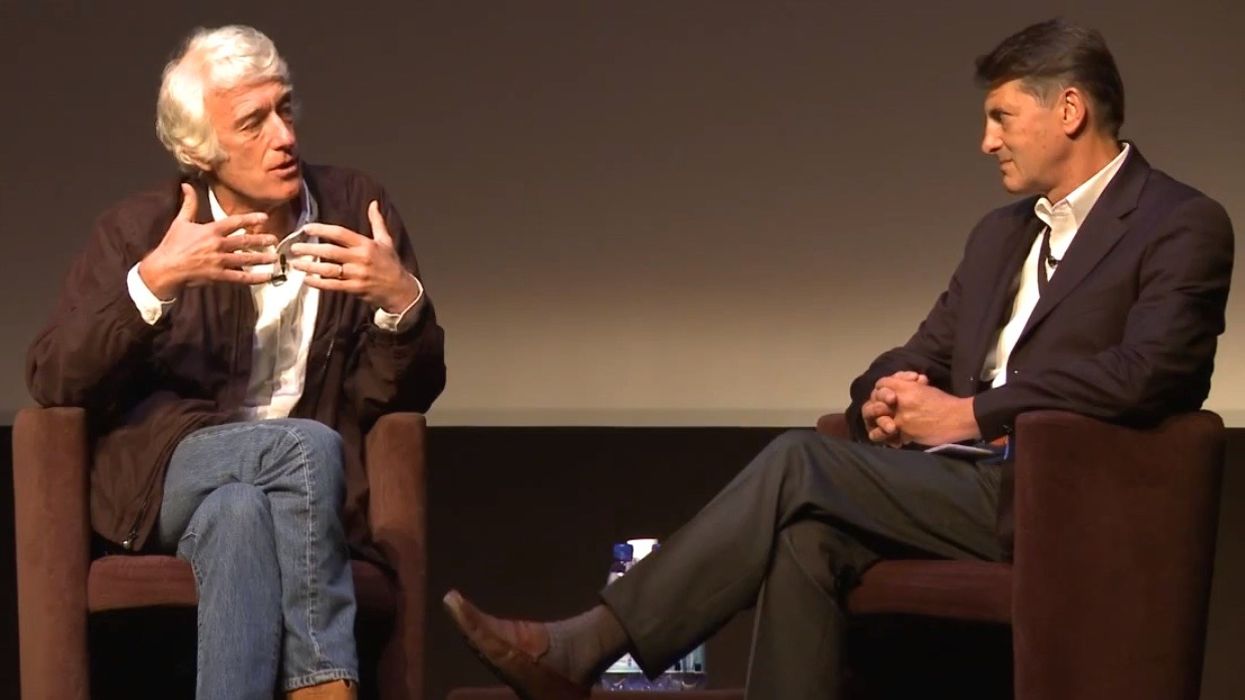Roger Deakins Talks About Using the Arri Alexa at IBC

Roger Deakins (The Shawshank Redemption, No Country for Old Men) is arguably one of the greatest cinematographers of the last 20-30 years (if not one of the greatest all-time). His work is timeless in a way that is hard to describe, but much of it comes from his ability to paint with light. Deakins had shot all of his work on film up until Andrew Niccol's In Time, which he lensed on a prototype Arri Alexa. We covered back in February of 2011 an interview with Deakins where he stated that "film had a good run" and that he wasn't sure if he would ever shoot film again. Now he's taken on a much larger project with the camera, the new James Bond film Skyfall, directed by Sam Mendes. Mr. Deakins recently sat down with Franz Kraus, the Managing Director of Arri AG at this year's IBC trade show.
Thanks to Notes On Video for the links. First, here are two trailers for Skyfall (I'm including the second one because it has a cleaner 1080 option, and also it's interesting to see the differences between American and International trailers):
Here is the 3-part interview with Roger Deakins and Franz Kraus:
I actually saw In Time, and I thought it looked great. I had no idea what it was shot on, and based on Niccol's other films, I had assumed it was celluloid. I think the name change is what threw me off, but either way, I sat through that whole movie and was blown away by the image.
Obviously the talk is very pro-Arri since it's at an Arri event and posted on the Arri YouTube channel, but Deakins always speaks very honestly about his work. If another camera came along and he liked the image better, there is no doubt in my mind that he would be shooting with it. Even though he has been involved with Arri since the beginning of the Alexa project, there's no question he wouldn't have used the camera if it didn't work properly. His resume is such that he can go shoot any movie he wants and it's likely he is one of the higher paid cinematographers out there, so I have no other choice but to believe he really means what he says.
He takes a few shots at a company that shall remain nameless, but his point is valid. Arguing about how many Ks your camera has is really missing the point. All that really matters is what the image looks like and what the DP can get out of the camera. This is something that I've also said over and over again. Specs mean something, but if the image doesn't look as nice as another camera, what's the point?
What's especially interesting is that Deakins was a die-hard fan of film and never really saw himself moving to digital. When he tested the Alexa against film, there was more latitude in the Alexa footage than in a 4K film scan. He is unquestionably a master craftsman, and it's fascinating to hear him talk about how he actually prefers the cleaner image that digital offers. I've noticed that I prefer when there is less grain in an image -- unless the movie really calls for a gritty look, like Aronofsky's The Wrestler. I've shot films in both ways, on Super 16mm and on clean digital, and they both serve their purpose when used correctly.
He also talks about the highlight roll-off on the Alexa -- which is the gradient within the brightest highlights. One of the reasons people love film so much is because of the highlight performance. More of film's latitude is in that region, and unless you're really going for a clipped highlight look, having a nice gradient makes for a much more pleasing image. It's not just Alexa's high dynamic range that accomplishes this, but there is supposedly a 1/4 softening filter in front of the sensor. This explains the way the camera blooms a bit with highlights, and overall it actually softens the harshness of digital. If you take those two factors into consideration, it's no wonder that Deakins likes the image so much, as those are things that also give film its signature look.
On another note, one of the reasons I can't stop talking about the Blackmagic Cinema Camera is because of the image it produces. Honestly I could not care less about the specs in the end, as long as the image is relatively sharp. The BMCC does this and more, and part of the reason the image is so pleasing is because it renders colors in a way I haven't seen out of any other camera except the Arri Alexa. Would I love to shoot my next project on an Alexa? Absolutely. Is that going to happen? Probably not. But everything Deakins is saying is how I feel about the image coming out of the BMCC. Of course, these things are all subjective, so it's up to you to do your own testing and actually work hard to find the right camera for your particular project. Every camera is not right for every job, but clearly some are better in certain situations.
What do you guys think? Do you guys prefer digital or film? Or a mix of both? Do you agree with what Deakins says about the Alexa (assuming you've seen more than just web video of that camera in action)?











